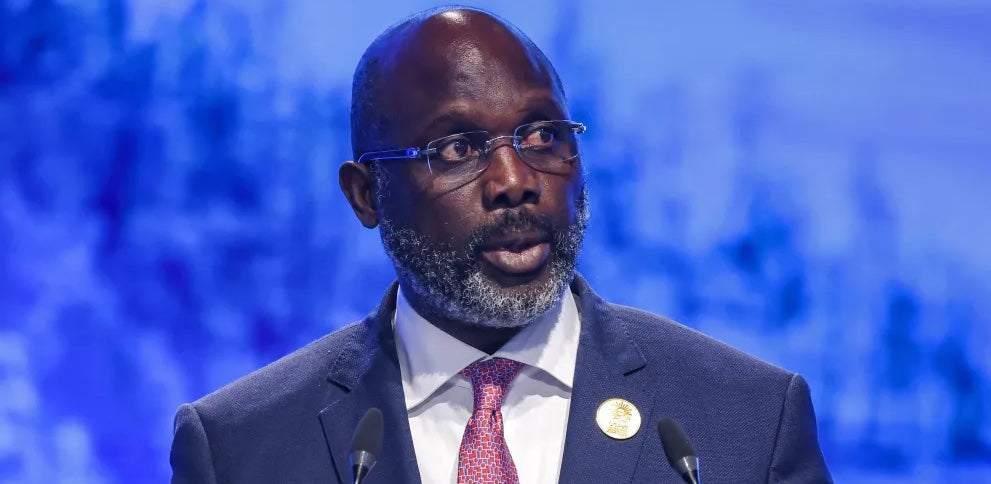
George Weah: The Legend Who Conquered Football and Politics
From the rugged streets of Monrovia, Liberia, to the polished halls of its presidential palace, the story of George Weah is one for the ages. A football legend turned political leader, Weah's journey is a testament to perseverance, grit, and an unwavering commitment to the upliftment of his people.

Early Years and Footballing Prowess
George Tawlon Manneh Oppong Ousman Weah, born on October 1, 1966, began his life in a nation grappling with the burden of poverty and political instability. Nevertheless, from a young age, he showed a rare talent for football, a spark that would ignite into a fiery passion.

His football career took off with Invincible Eleven and Mighty Barrolle, two of Liberia's top-tier football clubs. His impressive performances caught the eye of football scouts, and he soon found himself on a plane to Cameroon, playing for Tonnerre Yaoundé.
Weah's prowess wasn't contained in Africa for long. European clubs noted his exceptional talent, and he subsequently joined AS Monaco under Arsène Wenger in 1988. This was the beginning of Weah's meteoric rise in international football.

His performance at Monaco earned him a transfer to Paris Saint-Germain in 1992, where he lit up the French league with his dazzling skill and deadly scoring touch. Yet, it was his move to AC Milan in 1995 that would solidify his legendary status. Weah dazzled the Italian Serie A, scoring numerous spectacular goals and demonstrating a unique blend of power, speed, and technique that few could match.

The Unprecedented Accolade
Weah's talent did not go unnoticed. In 1995, he was awarded the FIFA World Player of the Year, the Ballon d'Or, and was named African Footballer of the Year—an unprecedented sweep of the three most prestigious awards in football, becoming the only African player to have won all of them to this date. His journey from the slums of Monrovia to the zenith of world football was an inspiration to millions around the globe.

Transition to Politics
However, Weah's ambitions extended beyond the football pitch. Retiring from professional football in 2003, he focused his efforts on social and political change in Liberia. He graduated with a degree in Business Administration from DeVry University in 2011 and earned a master's degree in Public Administration two years later.
He first ran for Liberia's presidency in 2005, losing in the second round. But Weah was not discouraged. He ran again in 2011 as a vice-presidential candidate, but his party was defeated once more.
Presidency and Impact
Undeterred by past losses, Weah ran for president again in 2017, this time securing a resounding victory and becoming the 25th President of Liberia. He inherited a nation still struggling with the aftermath of civil wars and the devastating Ebola crisis.

Weah's presidency has been marked by efforts to combat corruption, improve education and healthcare, and rebuild Liberia's economy. As a political leader, he has consistently emphasized his commitment to the Liberian people, often referencing his humble beginnings as the motivation behind his drive to uplift the nation.
George Weah's life is a testament to the power of determination, talent, and resilience. His journey from the underprivileged slums of Monrovia to the top of world football and then to the helm of Liberian politics is a story of defying odds and redefining possibilities. Weah's legacy transcends his achievements in football and politics, reminding us all that regardless of where we start in life, our potential is limitless.
Join us in celebrating this legend of the game.
Be a TENLEGEND.

Comments
Tal said:
I know of his playing talent but never heard of his political and social involvement until now. Very inspiring to see compares to so many other success stories who are inspired of choosing to influence society are only willing to profit to their own personal legacy. Weah is scarifying his fame to truly help his people and this is impressive to see and makes you think how better it could be if others in his ranks could do only little of his efforts to influence